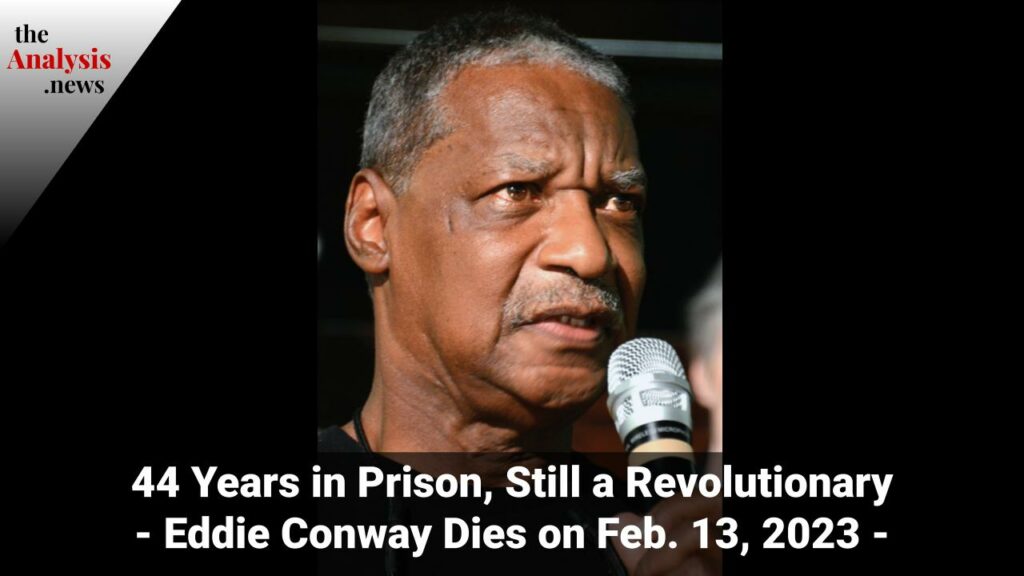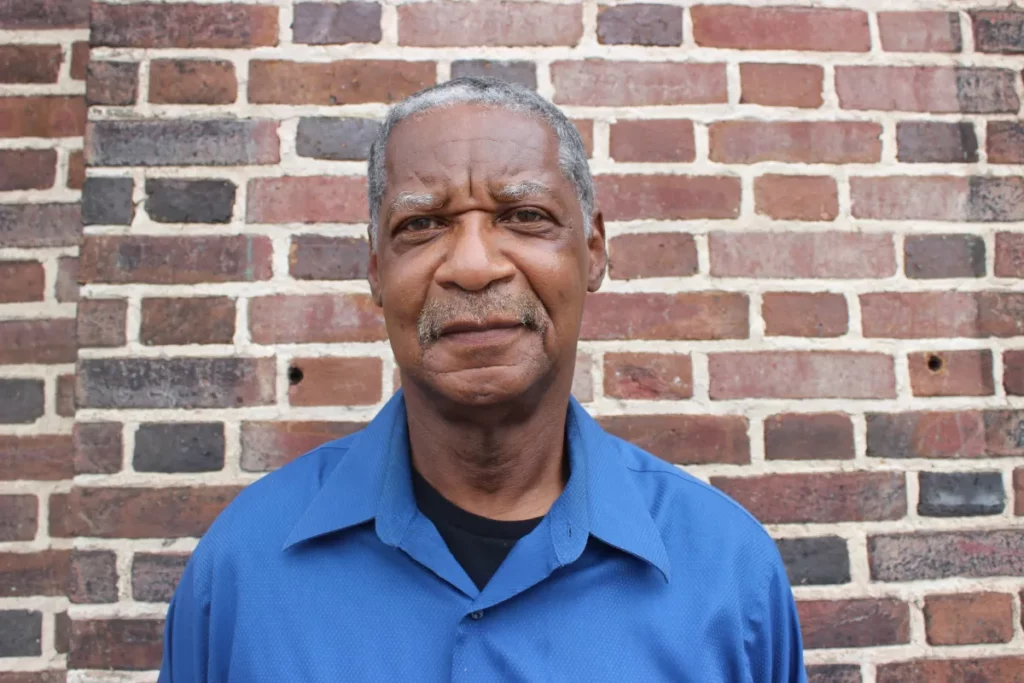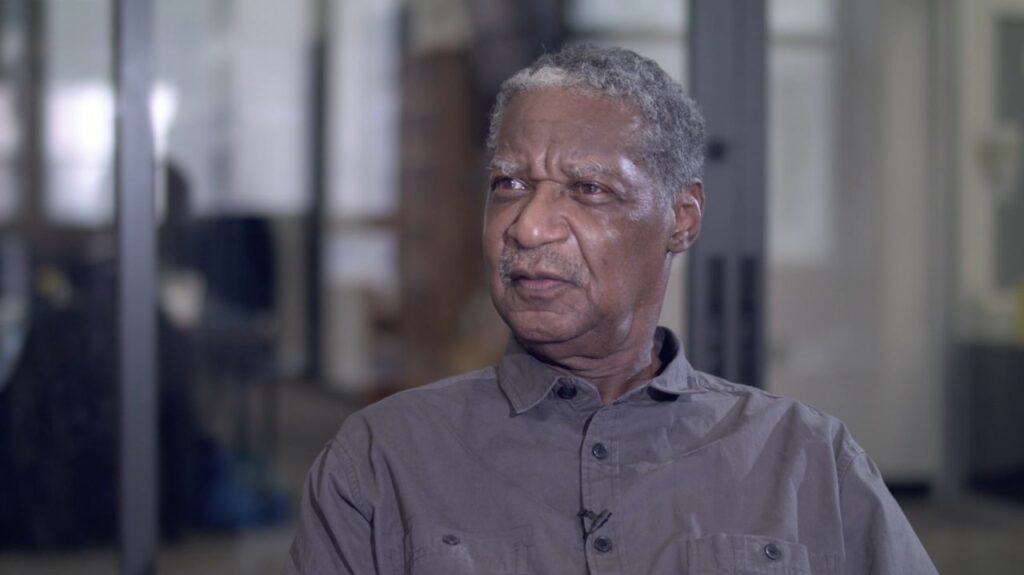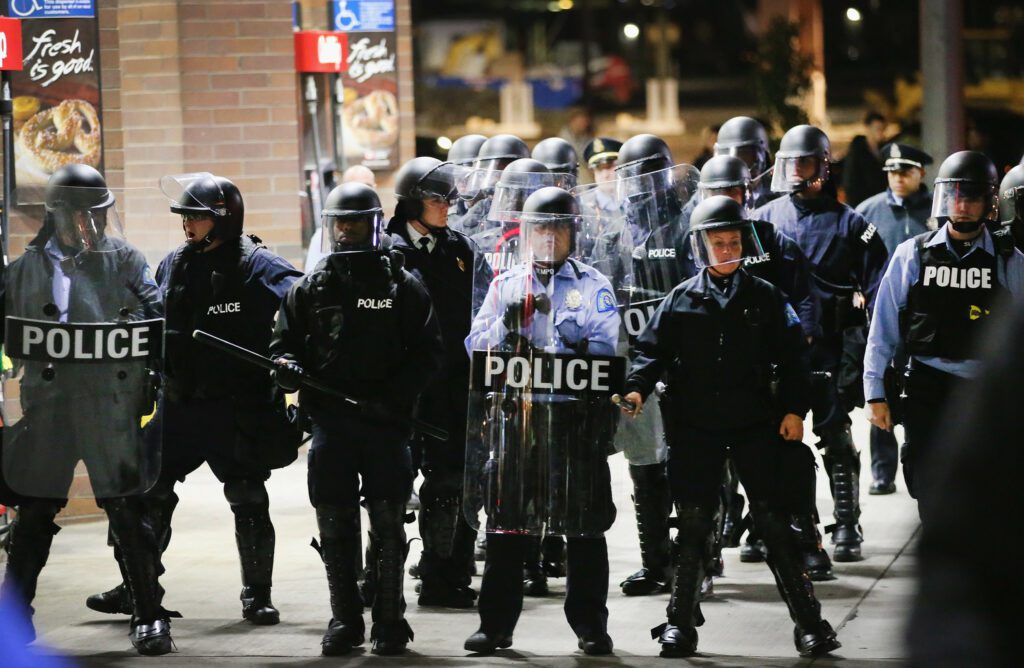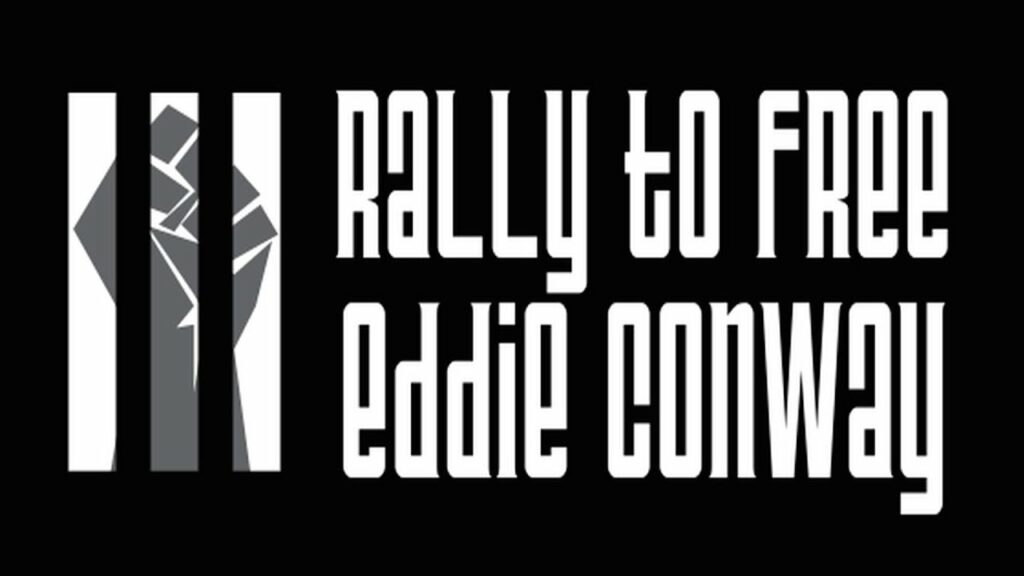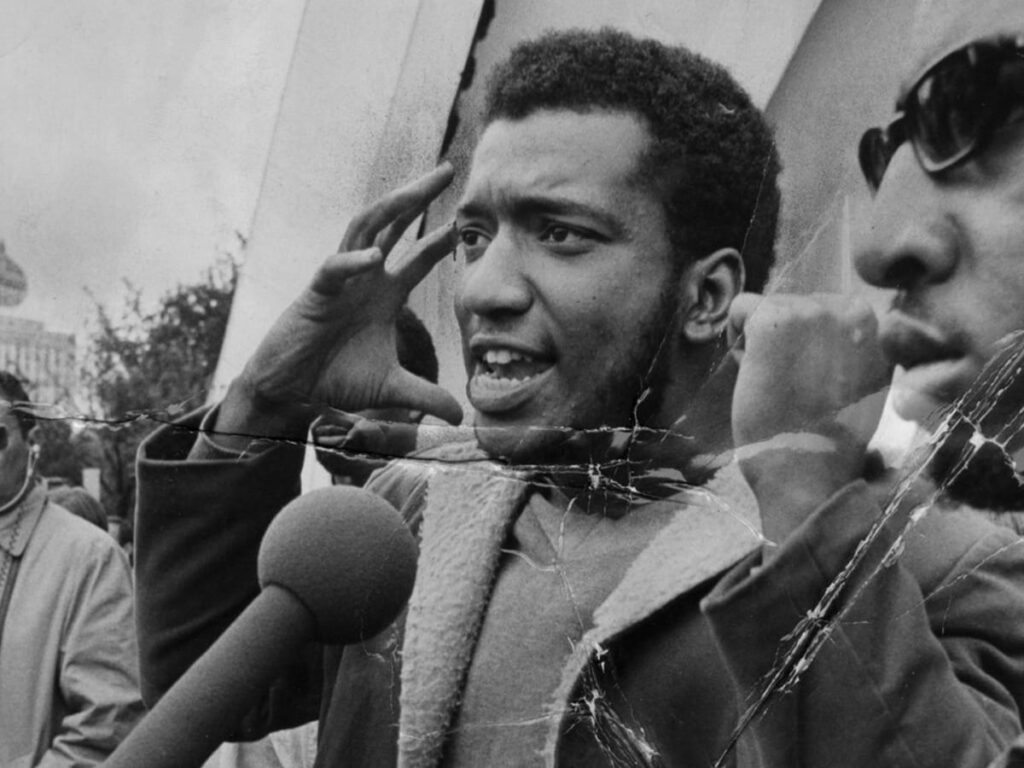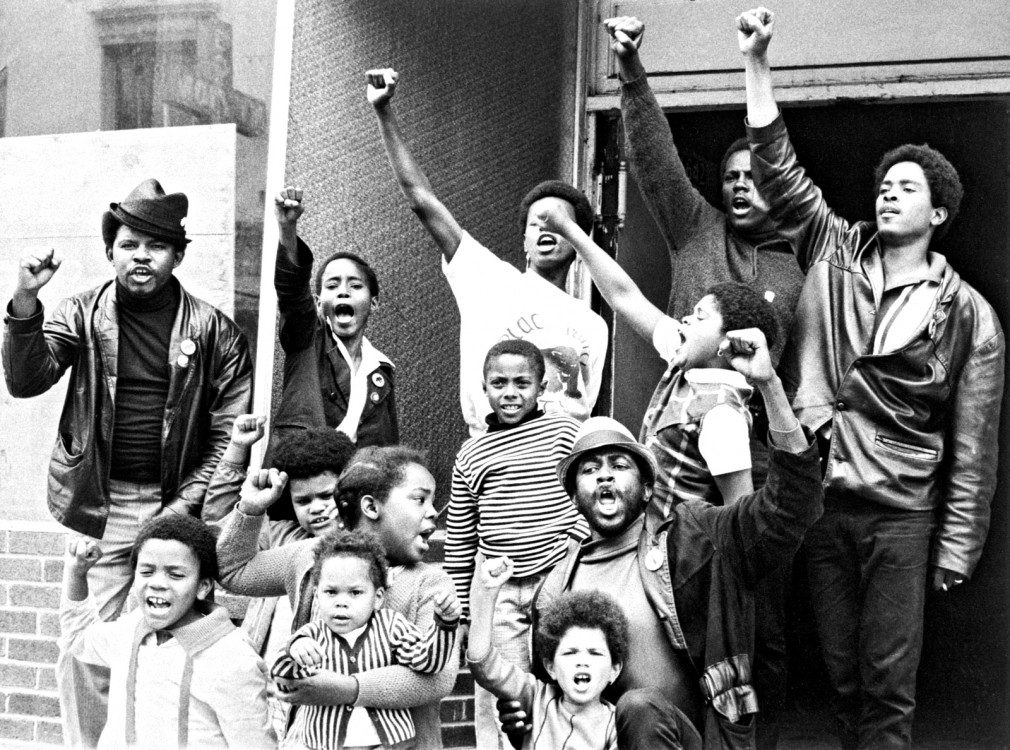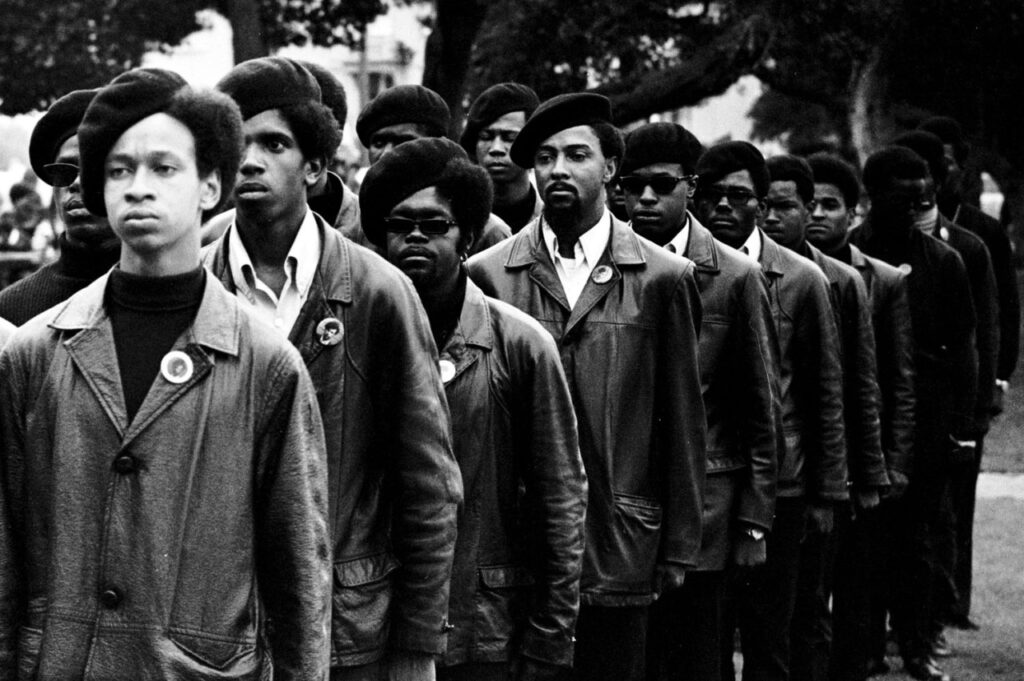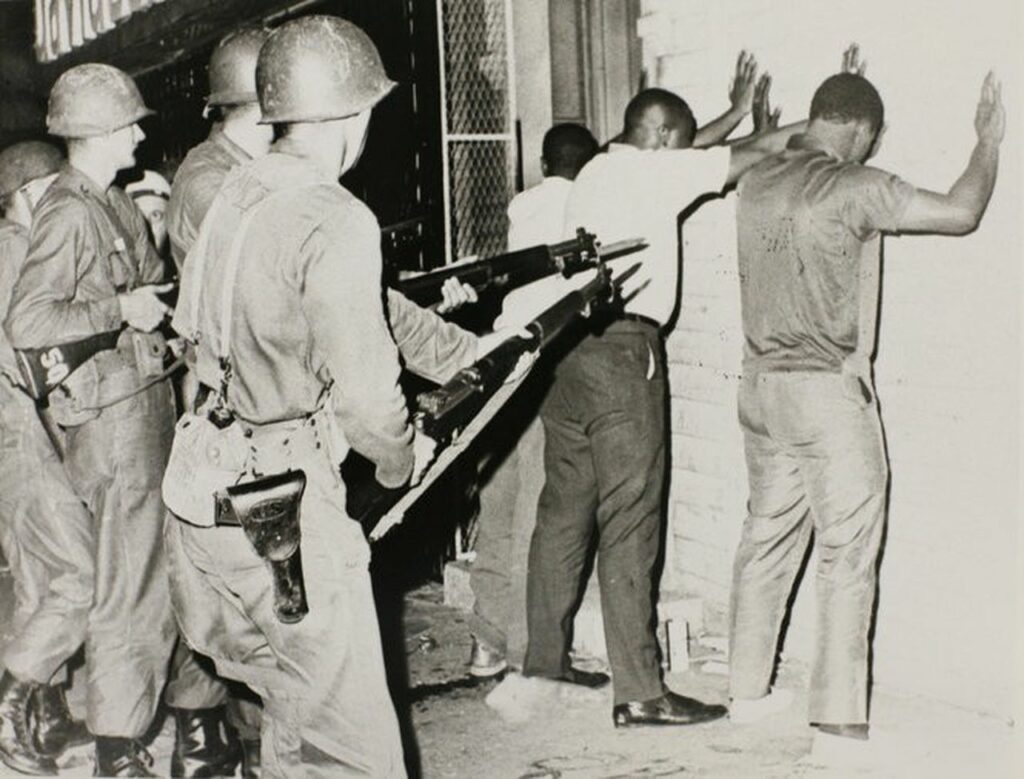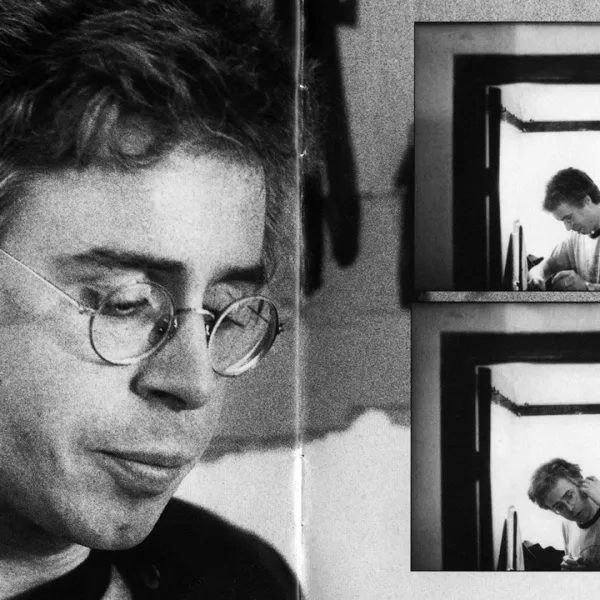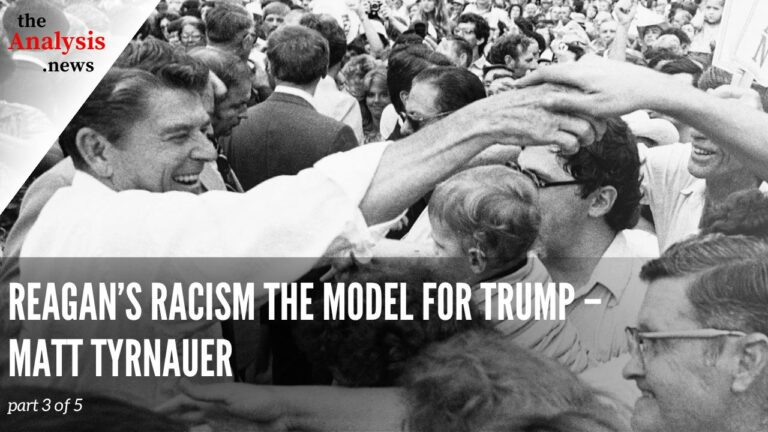Mr. Conway says prisoners were treated like animals; and because he resisted and organized, he was in lockup twenty-three and a half hours a day for six years. This is an episode of Reality Asserts Itself produced on September 25, 2014.
PAUL JAY, SENIOR EDITOR, TRNN: Welcome back to The Real News Network. I’m Paul Jay, and this is Reality Asserts Itself.
We’re continuing our series of interviews with Eddie Conway, who was a Black Panther in Baltimore and was convicted in 1970 of murdering a policeman, a crime he says and most people that have looked at the case say he was not guilty of. He was released about six months ago after serving 44 years. I suggest you watch the other parts of the series, ’cause we’re continuing a multipart series of discussions.
And now joining us in the studio is Eddie Conway.
Thanks for joining us.
EDDIE CONWAY, FMR. BLACK PANTHER, BALTIMORE CHAPTER: Okay. Thank you.
JAY: So we left off the last part where you were talking about the trial. You didn’t participate in the defense. And now you’re awaiting the jury’s deliberations. And what are you expecting?
CONWAY: Actually I’m expecting that they wouldn’t find me guilty, because I did not see how 12 people could see the evidence and hear what the story was and still come back with a guilty verdict.
JAY: Now, it was a majority black jury.
CONWAY: I believe it was. And it’s not clear in my mind, but [what] the newspaper reports said was I tried to check some–a couple of years ago, to make a determination. I talked to other people. Nobody’s really clear, but apparently it was a majority black jury. It’s just that the–.
JAY: Now, just for people that didn’t follow the whole story here, you didn’t participate, so you’re actually down below in a holding cell.
CONWAY: Yes.
JAY: So it’s not like you’re looking at the jury every day. In fact, if I understand correctly, you were relying on television news at night to find out what happened during your trial during the day.
CONWAY: Yes, that’s correct. Yeah.
JAY: So the moment comes, and you’re not expecting to be convicted, and you hear “guilty”. What is that moment for you?
CONWAY: Well, obviously, it’s a big letdown. One, I had to face the fact that I had been deceiving myself. I thought that–on the one hand, my politics said that you couldn’t get a fair trial in America, and all the things leading up to it indicated that I wasn’t going to get a fair trial in America. But at the same time, I kind of felt like, well, 12 rational people, a group of my peers, should be able to look at this stuff and see that there is nothing there and make a rational decision. That didn’t happen, so I was disappointed, and at the same time kind of disappointed in myself for believing that there was a possibility of justice in spite of what the government was doing. And, you know, that hits you hard.
JAY: Now, as soon as you’re convicted, it’s an automatic life sentence.
CONWAY: Yes.
JAY: And you actually got life plus 30 years. What is that? If you already got life without parole, what is the 30 years? But you had–no, there was the possibility of parole, right? You just kept getting turned down.
CONWAY: Yeah.
JAY: But what’s the extra 30 years for?
CONWAY: The extra 30 years was for the assault on the other police officers, both the one that got shot and the one that claimed he got shot at. Yeah.
JAY: Again.
CONWAY: It was 15 years apiece for each one of those.
JAY: Right. And it’s the same issue as the murder, and you’re not there for any of this.
CONWAY: Yeah.
JAY: So you’re being held in a cell and your prison time more or less is beginning, and it doesn’t take very long before you’re in the middle of–the you-know-what hits the fan.
CONWAY: Yeah. Apparently, when I got into the prison itself, there was 100 guys waiting in the prison that wanted to be Black Panthers and that had kind of, like, watched the trial and watched the ordeal of me going through city jail and so on. And initially when I got there, my position was that I didn’t have any time to be working in the population with anybody. I didn’t have any time to be considering doing any organizing or prison reform or anything like that. I needed to figure out how to get myself out of prison and I needed to spend all my time and energy focusing on that. But the guys were so insistent, and there were so many of them, and some of them seemed so sincere that it was almost, like, impossible not to come and help them and not to come and kind of, like, provide some leadership for them and some education. And so, at the sacrifice of my time and energy in terms of getting myself out, I went and I worked with them.
JAY: Now, but almost from the first few days there’s an incident that involves you in a prison uprising of sorts.
CONWAY: Yes. And it also caused me to start smoking. I had never smoked in my life. But apparently they had taken over a building, had captured some hostages. And I was unaware of what was going on. And eventually they sent for me and asked me to negotiate the release of the hostages and a settlement of their grievances. And so I end up in the middle of a hostage situation. And I did negotiate it and it did get resolved, but I end up smoking five or ten cigarettes in the process.
JAY: So talk a little bit about who–as you get to know the people in jail–I mean, I guess you knew a lot of people in what, I mean, some people call street gangs, you call street organizations. You had contact with people in street organizations prior to going to prison? Or did you start to get to know more in the prisons?
CONWAY: Well, there wasn’t street organizations and street gangs at that time. There were, like, neighborhood crews. There was very little kind of drug trafficking in ’70, ’71, ’72. I mean, that was something that kind of, like, came, grew out of Vietnam. And the organization, the street organizations we see now didn’t exist then. In fact, in the state of Maryland, the prison administration actually created and allowed those kind of gangs to grow to counteract the organizing we were doing in the prison system to bring about reform. And they allowed a young, new family, it was, in fact, they allowed a young mob of maybe three or four hundred young people to organize as a gang to try to convince the population not to follow us and not to push reforms. And, of course, the population being somewhat old in most cases, from grandfathers to fathers to uncles, etc., to adult males, just pretty much pushed for the reform. But the administration could only rely on the young people to kind of help them out, and so for a long time they were actually working for the administration. Some of their leaders were actually being paid off by the administration.
JAY: And this is now pretty common stuff throughout jails throughout North America, to have gangs.
CONWAY: Now.
JAY: Gangs are actually the disciplinarians in the prison.
CONWAY: Yeah. Now it’s the tool for prison management. And prison management uses the gangs to keep control of each other. They divide and they conquer. They create conflicts. They foment violence. And they also allow the population to be drugged.
JAY: Well, I was just going to ask you. When you’re first in, how much drugs are there? And how does that develop over time?
CONWAY: There were very little drugs when I first went in.
JAY: Seventy, ’71.
CONWAY: Seventy, ’71. There was a minimum amount of drugs. People were taking pharmaceuticals, pills that they were getting from the dispensary, or other kind of things, or there was some smuggling in of a little marijuana or stuff like that. Very, very little hard drugs. Yeah.
JAY: And when do you start to see the kind of drug proliferation that we see now, which is–if I understand it correctly, it’s not very hard to get drugs in prisons these days.
CONWAY: Yeah. And, actually, it occurred somewhere within the next three or four years, ’73, ’74, ’75. By the time I–’cause I spent a tremendous amount of time on lockup, or in solitary confinement, as they call it, right? By the time I got out of–off of lockup–.
JAY: You were in lockup for how long?
CONWAY: I spent the first six–the first seven years, I spent six years of that time on lockup.
JAY: And what were the conditions of lockup?
CONWAY: Well, the conditions were you were locked in the cell, you didn’t have anything, you didn’t–I mean, you were allowed soap, toothpaste, that kind of stuff. You weren’t allowed anything else. You stayed in that cell for twenty-three and a half hours. You came out for half an hour one day and got a walk. The next day you came out, you got a shower. And it rotated from shower to walk. But you did pretty–unless you went to the hospital or you had a visit, pretty much you were locked in that cell all day long.
JAY: Twenty-three and a half hours a day for seven years.
CONWAY: Yeah, six of the seven years.
JAY: Why are you in there and not general population?
CONWAY: I’m in there pretty much because I refused to be abused. I mean, that’s really the bottom line. When I got into the prison system, they were treating the prisoners like animals, and it was acceptable to some people. And it just wasn’t acceptable to me. So I resisted it. I rebelled. In some cases, I actually got into physical conflicts with the guards. And I end up getting time on lockup. And probably the last–well not the last, but next to the last, the time that I get the longest amount of time for was an incident that occurred down on the flats, where they beat a person for a block in front of hundreds of people and it led to almost a riot, but it led to assault on other police officers. And I actually got locked up because I was the leader of the group that actually had led the attack.
JAY: To try to save this person that was being beaten up so badly.
CONWAY: Yeah.
JAY: And you write in your book, if I remember correctly, that they essentially tried to kill you while they had you.
CONWAY: Yes, they tried several times to kill me. They tried to kill me at that particular time. They tried–they actually had a hitman that tried to kill me. And then they actually–.
JAY: “Hitman” means someone from the prison population that was paid.
CONWAY: Yeah, some–yeah, a guy in the–he was from the psychological ward, in fact, and they had–.
JAY: Well, first tell us the story of what happened when this guy’s being beaten in front of everyone, I guess, to send a message.
CONWAY: Well, and it was normal. That was normal policy in the prison at the time. And the tiers were very long. And so the distance from one end of a cell block to the other, it was the same way as looking up a block. In fact, they were a block long. And if there’s an incident happening down at the other end and the goon squad–this is the guys that were trained to beat and suppress anybody that was rebelling or getting out of hand or causing disruption–they would come and get a guy, and they would beat him, and they would start beating him, and they would beat him and drag him and kick him, and he’s screaming and hollering. And the rest of the prisoners are watching and pretty much–.
JAY: The guys are in their cells, the cells?
CONWAY: No, they’re actually out.
JAY: Or everyone’s out milling around?
CONWAY: They’re out. They’re milling around. And they just opened a corridor up in front of where they’re going at, and they bring him up–like, it’s like through a gauntlet. They come through the gauntlet [crosstalk]
JAY: How many guards are involved in the beating?
CONWAY: Sometimes it’s six. I mean, most of the time it’s–the crew is, like, six. You know.
JAY: So what did you do?
CONWAY: Well, I didn’t do anything. I was actually up on the tier at the time. And one of my guys–.
JAY: Looking down on this.
CONWAY: Yeah. And one of my guys, apparently, stepped out and confronted him and told him, let the guy go. And they threatened him and told him that they would come back and get him, and they said, we’ll be back to get you. And so they left. They took this other guy away. And when they came back to get him, there were several other guys there with him waiting for them. And they got to fighting. And then they got to–actually, there was stabbing involved, and one of the police get stabbed. And eventually they subdued everybody.
JAY: What’s your role in all this?
CONWAY: My role is that they came back later on and lock me up. They locked up the leaders of the organization. And, of course, I was up on the tier. So they locked me up.
JAY: So you weren’t even involved directly in the fighting.
CONWAY: Well, I did get attacked. I wasn’t involved in that fight, but I was off, like, one tier away when an officer–in fact, I did, I got time for that–an officer attempted to hit me with a billy club, well, ’cause it was–it wasn’t a riot, but it was chaos, and there was, like, fighting going on down there, and there was fighting over in a couple of other places, and there was fighting down in another area. And the officer basically–they knew that it was my organization, and he attempted to hit me with the billy club. And I took it from him. And I end up getting an assault charge for that, and I end up getting a robbery charge for taking his billy club, which I–.
JAY: You got a robbery charge for taking his–
CONWAY: Yeah, I’d–.
JAY: –you’re getting beaten with a billy club and–?
CONWAY: Yeah. And, I mean, that kind of, like, boggled my mind, because what was I supposed to do?
JAY: Well, you already got life plus 30 years. So–.
CONWAY: Yeah. Yeah. So–.
JAY: But the consequences of this is solitary.
CONWAY: Yeah. So they–but actually what they did was they attacked me and they tried to kill me. And they hid me in the death chamber, where they had–the gas chamber is where they were executing people, but at that time it wasn’t in use, because there was a Supreme Court ruling or something that declared that it was illegal.
JAY: I should just quickly say–Eddie told me this off-camera–when he was sentenced, the jury at the time, while they found him guilty, he was not guilty with a death sentence. It was life plus the 30 years.
And what happens there? What happens?
CONWAY: Well, they actually broke my jaw. They broke my shoulder. They beat me unconscious. They hid me up in the gas chamber area, where no one ever goes, and it was a vacant part of the prison. And they kept me up there for two or three days. And they wouldn’t tell anybody where I was, my lawyers, etc.
JAY: Were the injuries such that you thought were dying?
CONWAY: Well, the injuries were such that I would have died if the lawyers had not gotten a court order for them to allow them to come into the prison system and see me. And they brought a doctor in with them. And they, at that point there, then was ordered by the judge to take me to the hospital. Well, at the time I had several broken bones, and I had, obviously, an infection, a serious infection, from just being left there. And the intention was to leave me there until I died, but I didn’t die.
JAY: Now, you’re convicted. You had this kind of dual thing going on in your head. Politically, you kind of knew you would never have justice. On the other hand, you personally kind of felt this jury wouldn’t convict. When you are convicted and you hear those words, life, is there still some thought, well, on appeal we’ll overturn this? What I’m asking is: when does the moment actually really sink in that I’m actually here, and maybe for the rest of my life?
CONWAY: Well, I never thought I would be there for the rest of my life. And so that moment never sunk in. I–for some reason or another, I mean, my resistance to believing that this could stand was, like, very strong, and I always thought that it could be straightened out, it could be corrected. We could do the investigation. We could unravel this thing. There could be justice somewhere down the line. And so we raised money, we organized, we campaigned, we did all kinds of investigations, we got the best attorneys we could, and it was always that something is going to change about this, because it’s wrong. And several times it looked like it would change, and several times it was very close to changing, and then misfortunes cause it not to change. Initially, probably the Supreme Court thing should have actually gotten us relief, but it didn’t.
JAY: What Supreme Court thing?
CONWAY: The Supreme Court case with the faulty ID, because that’s the same police–
JAY: The photographs. Right.
CONWAY: –yeah–that claimed that he had seen me grew up, right? But that didn’t happen. And then, a few years later, they actually made a decision that all of us had received a illegal trial. That was probably about 12 years after I was locked up.
JAY: Why was it probably an illegal trial?
CONWAY: It was an illegal trial because the Maryland Constitution was in conflict with the United States Constitution about allowing the jury to decide what the law was.
JAY: In other words, if I understand correctly, the judge told the jury, you do not have to follow the guideline of guilty beyond a reasonable doubt.
CONWAY: Yeah. Yeah.
JAY: So you were in for 12 years, and that’s found to have been unconstitutional.
CONWAY: Yeah.
JAY: So how the heck are you in for another 30 years and change?
CONWAY: Well, even though they acknowledged that it was unconstitutional and they changed the Maryland Constitution because of it, they still made us fight for the next 30-some–32 years, in fact; they made fight for the next 32 years on every level, on appeal after appeal. They made some deals with people. They gave people–some people that looked like they was getting ready to actually win a victory for us, they gave them relief, because each–even though this was a class of people that was affected by it, the conditions was that each person have to fight a long–.
JAY: So more than 30 years after the conviction is found to be unconstitutional, it’s not till, like, six months ago you actually get out.
CONWAY: Yes.
JAY: And even there, you kind of had to make a choice: fight this thing and probably stay in for the rest of your life, or agree to get out with time served so you don’t actually get to reverse the original conviction.
CONWAY: Yes, that’s true. That’s true. You have to–basically, you had to forfeit whatever rights that you might have had to challenge the state for whatever things that they had done wrong in the past to you. You could either sign that or you could stay and fight for another two, three, four–who knows how long. You know, there’s people there right now, a couple of hundred, perhaps, that’s still there, and who knows how long it’s going to take for them to get relief.
JAY: So they’re convicted unconstitutionally.
CONWAY: Yeah. Yeah.
JAY: Alright. In the next segment of the interview, I’m going to talk with Eddie about how the heck is he not furious, ’cause when you talk to Eddie, you do not talk to an angry, bitter person. At least, it doesn’t seem so.
So join us for the next segment of our interview with Eddie Conway on Reality Asserts Itself on The Real News.
Never miss another story
Subscribe to theAnalysis.news – Newsletter
“Marshall “Eddie” Conway was an American black nationalist who was a leading member of the Baltimore chapter of the Black Panther Party who in 1971 was convicted of murder of a police officer a year earlier, in a trial with many irregularities.”

